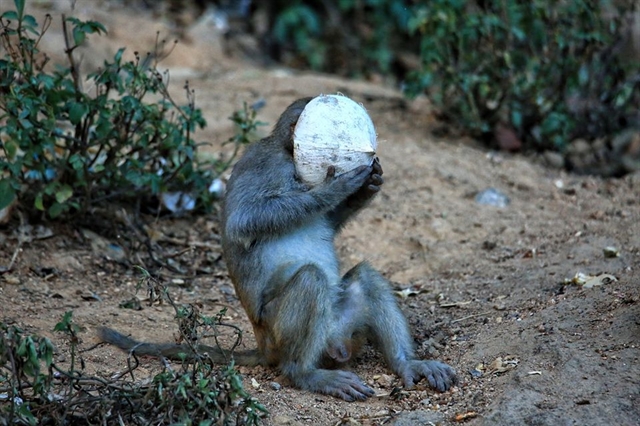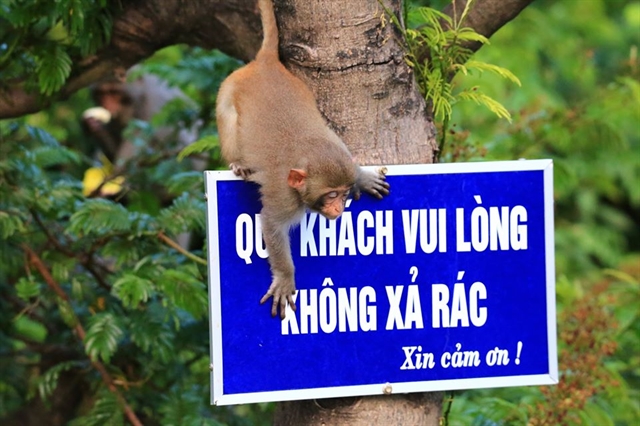 Environment
Environment

Recent research on the possibility of SARS-CoV-2 passing from humans to monkeys found there was a chance if the two were in close contact.

|
| A monkey finds food from a leftover coconut shell at a destination in the Sơn Trà Nature Reserve. Local rangers have been trying to drive troupes of monkeys back into their habitat in the forests of Sơn Trà. — Photo courtesy Bùi Thanh Lang |
ĐÀ NẴNG — Forest rangers have been attempting to drive troupes of monkeys (stump-tailed macaques) back to the Sơn Trà Nature Reserve in the central city of Đà Nẵng
Vice director of the city’s Agriculture and Rural Development Department Trần Viết Phương said a group of 30 monkeys that used to gather by the Linh Ứng Pagoda seeking food from visitors have been on the move since social distancing orders were implemented from April 1.
Phương said no tourists meant no food for the monkeys, so they would be forced to return to their natural habitat to forage for themselves.
Recent research on the possibility of SARS-CoV-2 passing from humans to monkeys found there was a chance if the two were in close contact.
Trần Hữu Vỹ, a biodiversity conservationist, said in order to stop the monkeys gathering at tourism sites, it was necessary to stop feeding them.

|
| A monkey climbs down from a tree to seek food at the Linh Ứng Pagoda in the Sơn Trà Nature Reserve. Many troupes of monkeys flock to tourist destinations to seek food from visitors. — Photo courtesy Bùi Thanh Lang |
Last year, the city warned tourists not to feed animals at the Linh Ứng Pagoda, Sơn Trà Temple and Intercontinental Đà Nẵng Resort.
The monkeys were getting used to taking candy, snacks and fruit from visitors.
Several conflicts have occurred since last year.
A baby monkey was grabbed by a local man at the Linh Ứng Pagoda, while two other monkeys were killed by household dogs at farms in the Sơn Trà Reserve.
An older monkey was also hit by a car at the foot of Sơn Trà Mountain.
The 4,439ha reserve is a safe habitat for the red-shanked douc langur (Pygathryx nemaeus), an endangered primate species listed by the International Union of Conservation of Nature. — VNS




